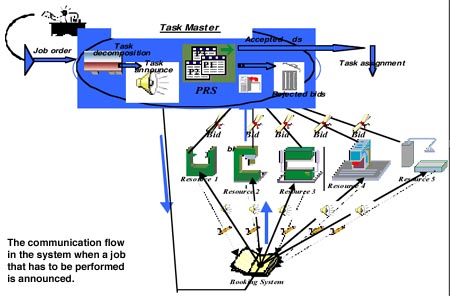

by Elizabeth Ilie Zudor and László Monostori
The goal of manufacturers, regardless of industry, is to efficiently get the products to the market, right and fast. Nowadays, on the one hand, companies have become customer-order-driven, ie they must be able to manufacture a high variety of customer-specific products, with short delivery times and low costs. On the other hand, to the technological criteria such as efficiency, productivity, profitability, other aspects concerning health, environmental impacts, resource and energy conservation, waste management and social impacts have been added. The fundamental goal of the research that started one year ago at SZTAKI, was to treat the efficiency and the environmental impacts of production in an integrated way.
Growing complexity is one of the most significant characteristics of today’s manufacturing which is manifested not only in manufacturing systems, but also the products to be manufactured, in the processes, and the company structures. The systems operate in a changing environment rife with uncertainty. Difficulties arise from unexpected tasks and events, non-linearities, and a multitude of interactions while attempting to control various activities in dynamic shop floors.
Holonic manufacturing systems (HMSs), as one of the new paradigms of manufacturing, consist of autonomous, intelligent, flexible, distributed, co-operative agents or holons. Holonic systems were found to deliver better performance in a wider range of situations than their more conventional counterparts. One of the most promising features of the holonic approach is that it represents a transition between fully hierarchical and heterarchical systems.
An environmentally benign approach to agent-based production control has been developed, which complies with the principles of HMSs. In the model the Task Master (TM) is responsible for job orders, including job decomposition into tasks, task announcement and assignment (see Figure). All the resources on the shop floor are expected to report their abilities (the tasks that they are able to perform) into the Booking System (BS). When a job order enters the system, the TM checks the BS and sends task announcements to the appropriate resources.
A multi-level system of rules named Priority Rules System (PRS) has been introduced to decide which resource is to fulfil the given task. In the proposed approach, not only the cost problems, but also the environmental impacts of processes and operations are considered during a resource allocation process relying on market principles. With the help of the SIMPLE++ production and logistics simulation package, the communication between agents on a shop floor was simulated. The mathematical model, which takes the PRS into consideration, was transposed in the SimTalk programming language. Simulation results illustrate the positive interference of life cycle assessment techniques of products and production facilities, on the one hand, and of agent-based approaches applicable within their life cycles, on the other.

In the near future, the existence of the product holons after the effective production till the end of life of products and the incorporation of waste management holons will be investigated. A more detailed elaboration of the proposed ideas is also addressed, and a more thorough series of experiments is foreseen. This project is partially supported by the Hungarian Scientific Research Fund, Grant No. T026486.
Please contact:
László Monostori - SZTAKI
Tel: +36 1 209 6990
E-mail: laszlo.monostori@sztaki.hu